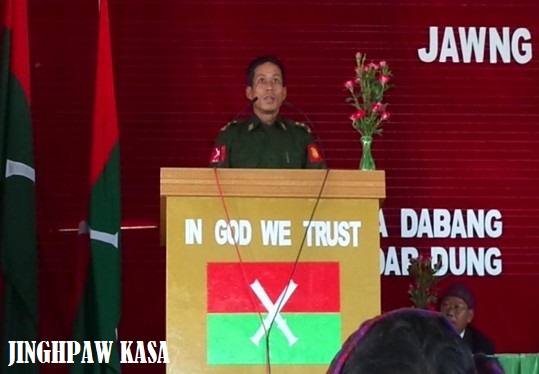Less than a day after the Burma's government announced that they all military offensives against the Kachin Independence Organization (KIO) would stop, fighting has continued unabated across Kachin state, including areas close to the KIO Laiza headquarters and jade-rich Hpakant (Phakant) region in the far west.

According to the government announcement that was issued on state TV Friday evening the army would no longer “carry out offensive attacks except in self-defense” starting at 6 AM Saturday morning. The pledge that was made on the eve of an international donor conference being held in Naypidaw was met with skepticism by KIO officials. “The Burmese... never keep promises," KIO spokesman James Lum Dau told Agence France Press (AFP) on Saturday.
The BBC quoted another KIO spokesman who said 3 hours after the ceasefire was to be enacted, Burma army units fired shells at KIO positions in Lajayang - a village of strategic significance and located less than 6 miles from Laiza. Over the past three weeks, Lajayang has experienced the heaviest fighting to hit Burma in decades; part of a massive government offensive that included repeated air strikes on KIO targets in the area. The Lajayang offensive forced the KIO to retreat from several key outposts raising fears that Burma's army will soon be in a position to advance on Laiza that is sheltering more than 25,000 refugees.
Throughout the day on Saturday, army units continued to attack KIO outposts at Hka Pot, north of Laiza, and Hka Ya Bum, west of the KIO capital. Since the ceasefire was declared, there have been no airstrikes reported.
Fighting between government and the KIO resumed on June 9, 2011 after the army ended a 17-year ceasefire with the country’s second largest armed ethnic group. Although representatives from both sides have met nearly a dozen times for peace talks over the last 18 months, the violence continues. The conflict that began about three months after President Thein Sein and his nominally civilian government took power has displaced an estimated 100,000 civilians.
The government's ceasefire announcement came shortly after Burma's parliament passed a non-binding motion on Friday. The motion was tabled by Dwe Bu, a Kachin professor who serves as an MP for the Unity and Democracy Party of Kachin State (UDPKS) - a small party allied with the ruling Union Solidarity and Development Party (USDP). Despite being a member of a pro government party, Dwe Bu also spelled Doi Bu, has been vocal in advocating an end to the Kachin conflict and the repeal of a government policy that has branded the KIO as an unlawful organization.



